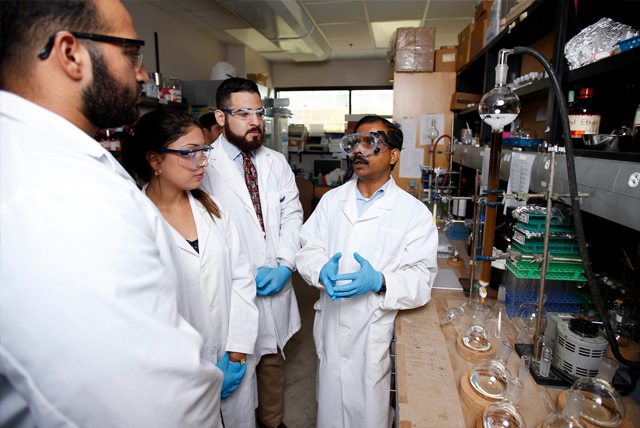Document Type
Article
Publication Date
5-2010
Abstract
An exploratory study of methicillin-resistant Staphylococcus aureus (MRSA) and SCCmec elements in bacteria along the Mexican border of south Texas was performed. Between September and December of 2008, 375 swabs of anterior nares were self-collected by students attending the University of Texas-Pan American (UTPA) and cultured for MRSA. Fifty seven bacterial isolates were kept for further analysis that included suspected MRSA and other SCCmec-containing bacteria. Isolates were examined for the presence of nuc, mecA, lukS-PV, and spa genes using PCR. SCCmec and spa typing were also performed. Seven S. aureus isolates were found of which six were classified as MRSA. SCCmec typing showed five of the six MRSA strains to be type IV, while one MRSA strain, and most of the non-S. aureus strains, were untypeable, producing results that were indicative of mixed SCCmec types. Five of the six MRSA strains contained known spa types (two of which corresponded to USA300 and one to USA600), while one strain had a novel spa type. Only one isolate, a USA300 MRSA, was positive for lukS-PV. Easy access by the Texas border community to antibiotics in Mexico without a prescription, and the strong partition in SCCmec types between MRSA and non-S. aureus bacteria suggest that this border region of Texas may be uniquely suited for the study of emerging SCCmec types, their horizontal transfer, and perhaps other aspects of antibiotic resistance in bacteria.
Recommended Citation
Ammons, D. R., Puttagunta, R., Granados, J. C., de la Garza, G., Eyambe, G. S., & Rampersad, J. (2010). An exploratory study of methicillin-resistant Staphylococcus aureus and SCCmec elements obtained from a community setting along the Texas border with Mexico. Current microbiology, 60(5), 321–326. https://doi.org/10.1007/s00284-009-9544-2
Publication Title
Current microbiology
DOI
https://doi.org/10.1007/s00284-009-9544-2



Comments
PMC Copyright notice